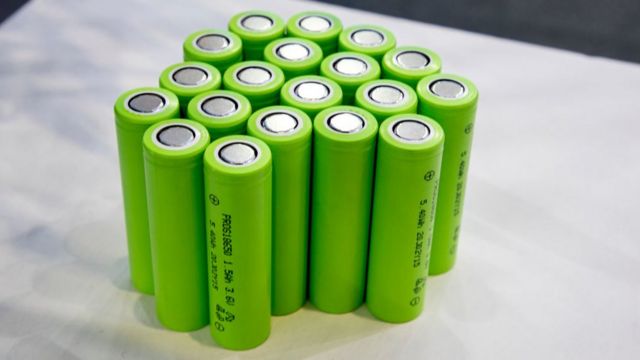Development of Environmentally Friendly Lithium-Ion Batteries – In the modern era that is increasingly connected and dependent on technology, efficient and environmentally friendly use of energy is becoming increasingly important. One technology that is particularly relevant in this regard is the lithium-ion battery. Lithium-ion batteries have revolutionized the world of electronics with their high power capacity, long life and easy recharging capabilities. However, despite these advantages, further development is needed to improve the efficiency and environmental friendliness of lithium-ion batteries.

Development of Environmentally Friendly Lithium-Ion Batteries
One of the main challenges in developing lithium-ion batteries is increasing energy conversion efficiency. Currently, lithium-ion batteries have a conversion efficiency of around 90%, which means that about 10% of the energy is wasted in the form of heat. Researchers and engineers are working hard to tackle this problem through various approaches. One promising approach is the use of a more thermally efficient solid electrolyte. Solid electrolyte reduces energy loss due to better thermal conductivity and reduces the risk of fire or leakage associated with liquid electrolytes. In addition, the use of new cathode materials with higher ion efficiency is also the focus of research to increase the total efficiency of lithium-ion batteries.
In addition to energy conversion efficiency
lithium-ion batteries also face challenges related to raw materials and environmental impacts. The current lithium-ion battery production process still relies on rare metals such as lithium, cobalt and nickel. The extraction and processing of these metals often involves practices that are detrimental to the environment and involve inadequate labour. Therefore, the development of lithium-ion batteries that are more environmentally friendly must include research on the use of alternative raw materials that are more abundant and easier to recycle. For example, using lithium from seawater sources or recycling old batteries can reduce dependence on new lithium mining.
In addition
it is also necessary to conduct research and development in the field of battery designs that are easier to recycle. Currently, many lithium-ion batteries are difficult or expensive to recycle due to their complex design and difficult-to-separate mixture of materials. By designing batteries that can be recycled more easily and economically, electronic waste can be reduced and natural resources can be used more efficiently.
The development of this technology
does not only involve research and development, but also requires collaboration between government, industry and society. The government needs to encourage policies that support the development of more efficient and environmentally friendly lithium-ion batteries through appropriate incentives and regulations. Industry needs to invest in research and development to create innovative and sustainable technologies. Society also plays an important role in adopting and supporting the more efficient and environmentally friendly use of lithium-ion batteries in their daily lives.
In conclusion, the development of lithium-ion batteries that are more efficient and environmentally friendly is an important challenge in facing future energy needs. By improving energy conversion efficiency, using more abundant and easily recyclable raw materials, and designing batteries that are easily recycled, we can achieve more efficient and sustainable lithium-ion batteries. Through collaboration and shared commitment, we can face tomorrow’s energy challenges and safeguard the planet for generations to come.